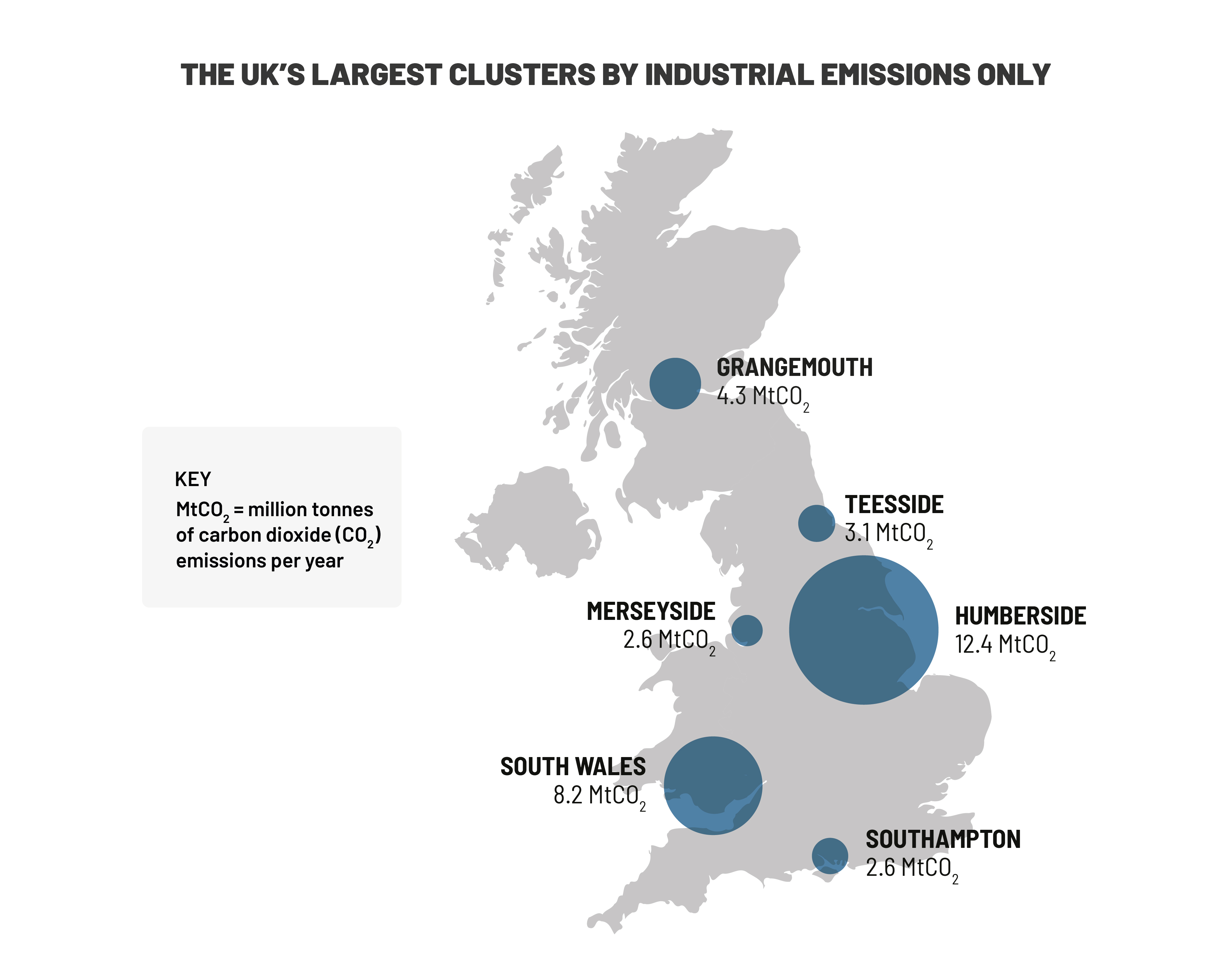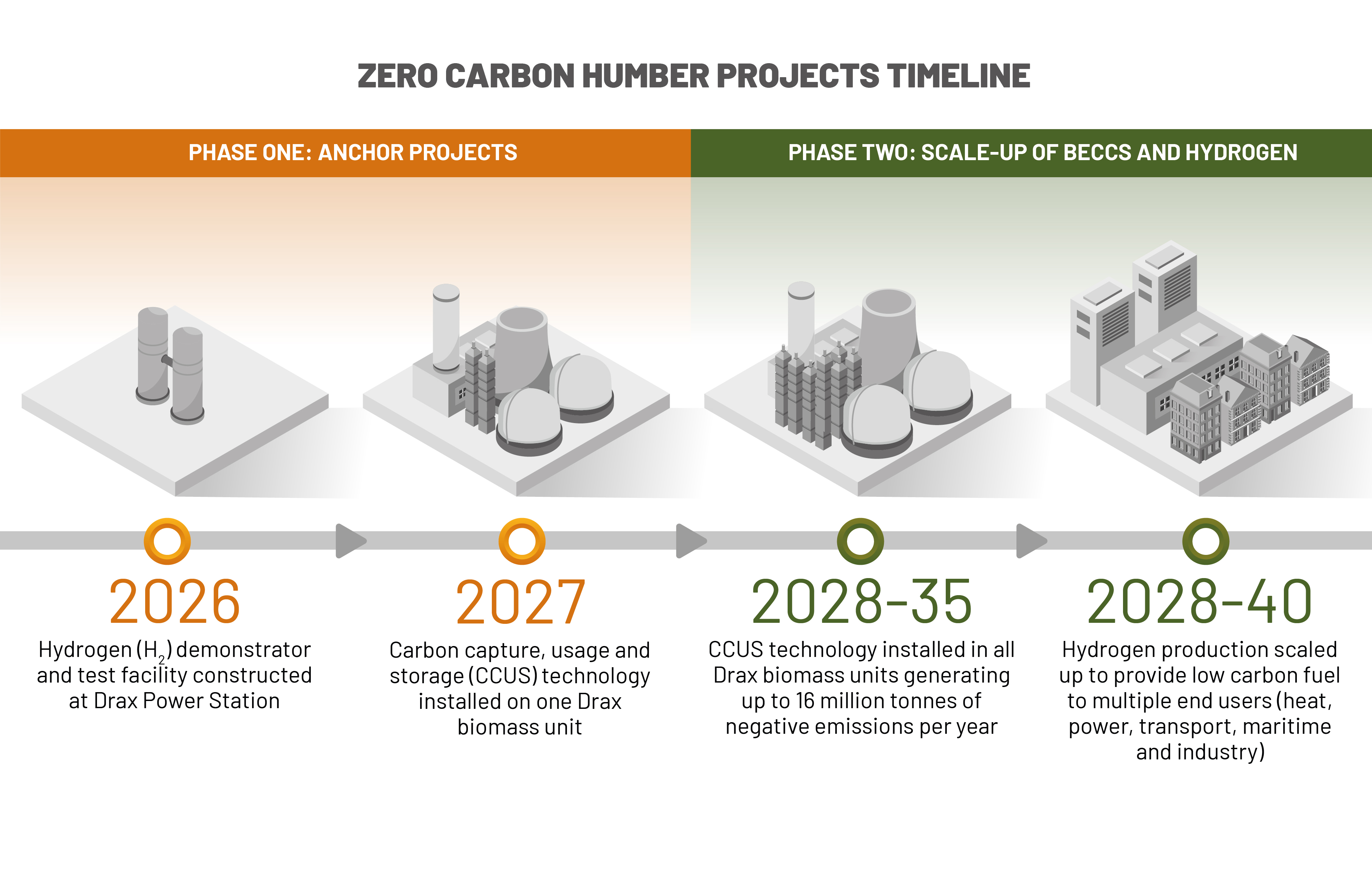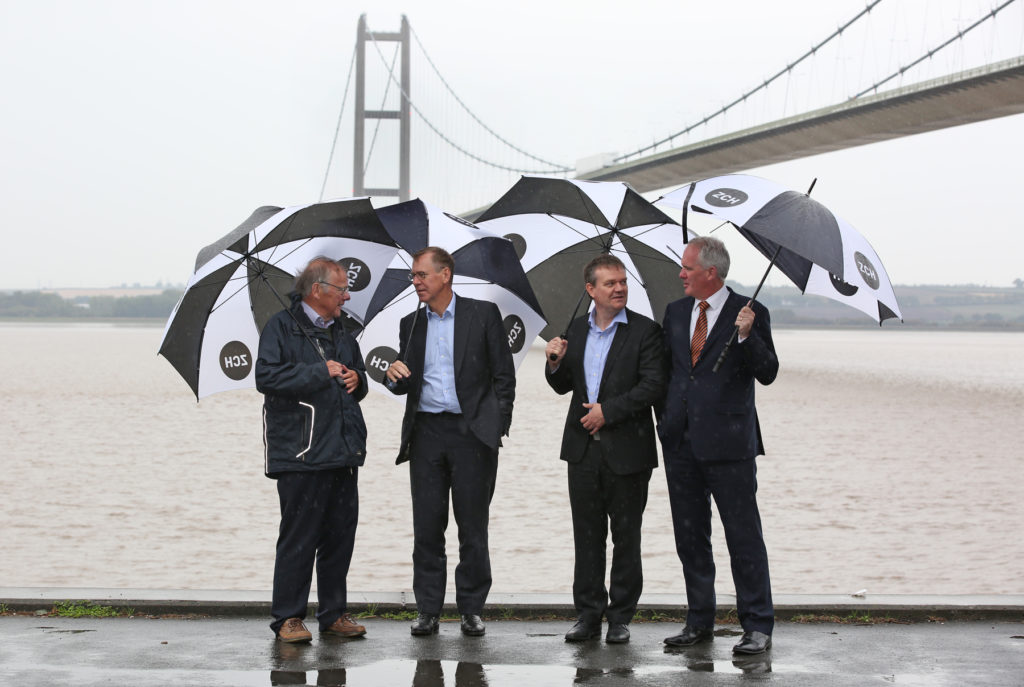-
A new campaign for the Humber has been launched aimed at winning government support for the region to become the UK’s first ‘net zero’ carbon cluster ahead of its 2040 target.
-
Achieving this goal will help to protect jobs within major industrial and manufacturing industries across the region by making the Humber the world’s first zero carbon economy, encouraging future global investment in the region.
-
MPs attending a campaign launch event in Westminster on September 4 heard that the Humber, as the most carbon intensive industrial region in the country, is best placed to become the UK’s first ‘net zero’ carbon cluster and support the wider decarbonisation of the North of England.
-
Industrial businesses are being invited to add their support to the campaign and help shape the plans for the region.
Leading energy companies Drax Group, Equinor and National Grid Ventures are spearheading the ZERO CARBON HUMBER campaign with the Humber Local Enterprise Partnership and CATCH, a trade body for industrials in the region. The campaign responds to the Government’s world-leading ambition to establish the first ‘net zero’ carbon industrial cluster in the UK by 2040.
Feasibility work is already underway to show how pioneering carbon capture, usage and storage (CCUS) technology can make the Humber a net zero carbon economy while providing the foundation for the roll-out of low carbon hydrogen as a fuel across the wider Yorkshire region.
To mark the launch of the campaign, the consortium is meeting with MPs and policymakers at a Westminster event where they will explain the benefits of a new zero carbon hydrogen economy in the Humber – both in terms of jobs, clean growth and export opportunities, as well as the positive impacts it will have in combatting the climate crisis.
The Humber is home to the UK’s biggest industrial economy, employing 55,000 people in the region and contributing £18bn to UK GDP each year, leveraging its rich heritage of industry, skills and trade. It hosts around 100 chemical and refining companies alone, which together account for around 12% of total employment in the UK chemicals sector.
But the Humber is also the most carbon intensive industrial region in the country. If industrial business across the Humber fail to decarbonise, they will face costs of between £1.4bn and £4.2bn in carbon taxes alone by 2040, making the Humber less attractive to global investors, putting jobs and supply chains at risk, damaging the opportunity to attract new businesses to the region.
[caption id="attachment_600" align="aligncenter" width="4016"] Click image to view/download.[/caption]
Click image to view/download.[/caption]
The UK’s Committee on Climate Change (CCC) said earlier this year that deploying CCUS and hydrogen technology at scale is essential if the UK is to meet its now legally binding target of net zero carbon by 2050. To achieve this ambition, it called on industry and government to work together to start producing hydrogen in at least one industrial cluster by 2030, along with combining biomass with CCUS technology to take carbon dioxide out of the atmosphere.
Launching the campaign Lord Haskins, Chair of the Humber LEP said:
"We at the Humber LEP fully support this initiative and its goals and are proud to work with businesses across the Humber to make this ambitious plan a reality. These plans entirely match what we want to achieve as a Local Enterprise Partnership – this is a huge opportunity to accelerate clean growth in the Humber while also supporting significant industries to adapt for the future.
“If we can achieve this goal of becoming carbon neutral on the Humber it would make us a brilliant example not just for the rest of the country, but the rest of the world.”
Will Gardiner, CEO of Drax Group commented:
“By working together the Humber region can become the world’s first zero carbon economy and thrive again as a British industrial powerhouse and be at the forefront of the fight against the climate crisis. We can help Britain become a world leader in emerging technologies like carbon capture, preserving and creating jobs, and rebalancing the economy.”
Irene Rummelhoff, Executive Vice President, Marketing, Midstream & Processing at Equinor added:
“The potential of this project is substantial for the Humber and the wider region in decarbonising multiple sectors of the economy. It can also act as a catalyst for clean growth for the UK and other countries. We look forward to continuing the good progress we have already made and working with new partners to develop these plans further.”
Jon Butterworth, COO, Global Transmission at National Grid Ventures said:
“This campaign is about tackling carbon so that we can keep major industrial business across the Humber open. If we get it right, we will help put the region back on the world stage and attract the industries of the future. The power industry has already made great strides to decarbonise the sector and continues to do so through the growth of renewables, battery storage and interconnectors. Today’s call for support represents the next critical step in helping us make sure we also get our plans right for industry. I urge them to join us and help shape a better future for the Humber.”
The consortium is also issuing a call for expressions of interest from more industrial businesses from across the Humber region, for them to sign up to the campaign and help develop a blueprint for the new carbon capture and hydrogen infrastructure needed to transform the region’s economy.
[caption id="attachment_593" align="aligncenter" width="4017"] Click image to view/download.[/caption]
Click image to view/download.[/caption]
There was a presentation for major industrial businesses in Hull on September 9 when they heard from the consortium spearheading the campaign. Their input will help inform detailed planning being undertaken as part of the work already underway since the signing of the memorandum of understanding between Drax Group, Equinor and National Grid Ventures in May 2019.
[caption id="attachment_646" align="alignnone" width="1024"]
 From left to right: Lord Chris Haskins, Humber LEP; Will Gardiner, CEO, Drax Group; Steinar Eikaas, VP Low Carbon Solutions, Equinor and Zac Richardson, Director Business Development, National Grid Ventures. Click photo to view/download.[/caption]
From left to right: Lord Chris Haskins, Humber LEP; Will Gardiner, CEO, Drax Group; Steinar Eikaas, VP Low Carbon Solutions, Equinor and Zac Richardson, Director Business Development, National Grid Ventures. Click photo to view/download.[/caption]
--- ENDS ---
Notes to editors
- More information about the Zero Carbon Humber campaign is available on the new website: ZeroCarbonHumber.co.uk.
- The founding partners of the Zero Carbon Humber campaign include:
- The Humber Local Enterprise Partnership: The Humber LEP is a partnership of businesses, educational institutions and the four Humber local authorities working together to promote and develop the area surrounding the Humber Estuary and provide strategic economic leadership to create jobs and deliver growth.
- CATCH: CATCH is an industry led partnership supporting the process, energy, engineering and renewable industries in the Humber region.
- Drax Group: Drax owns and operates a portfolio of flexible, low carbon and renewable electricity generation assets across Britain. The assets include the UK’s largest power station, based at Selby, North Yorkshire, which supplies six percent of the country’s electricity needs.
- Equinor: Equinor is a global energy company and the largest provider of oil and natural gas to the UK. It has more than 20 years’ experience of CO2 storage, currently storing up to 1.8 million tonnes per year, and is the operator of Northern Lights, part of Norway’s full-scale CCS demonstration project. It also has extensive expertise across the hydrogen supply chain and operates three offshore wind projects in the UK.
- National Grid Ventures: National Grid Ventures is part of National Grid plc, one of the world’s largest investor-owned energy companies. Separate from National Grid’s core regulated businesses, NGV develops, operates and invests in energy projects, technologies and partnerships to accelerate the development of a clean energy future for consumers.
- In May Drax Group, National Grid Ventures and Equinor announced they had signed a MOU committing them to work together to explore how a large-scale carbon capture usage and storage (CCUS) network and a hydrogen production facility could be constructed in the Humber in the mid-2020s.
- The Committee on Climate Change’s ‘Net Zero’ report states that BECCS could generate up to 173 TWh of electricity by 2050, capturing up to 51 Mt CO2 – around half of the remaining carbon in the economy that the UK will need to capture to become ‘net zero’.
- The CCC’s Net Zero report also identified that at least one of the UK’s CCUS regional clusters should involve substantial production of low-carbon hydrogen by 2030 to stay ‘on track’ for net zero. It also recommends that infrastructure development for CCUS should start as early as possible, in all regional clusters with large industrial emissions.
- The recently published H21 North of England study has also shown that up to 3.7 million homes as well as other industrial processes could be converted from natural gas to hydrogen to meet the UK’s climate change targets.
- The estimate for carbon taxation receipts facing Humber industrials in 2040 is based on the ‘low’ and ‘high’ scenarios for carbon pricing forecast in the HM Treasury Green Book (2018).